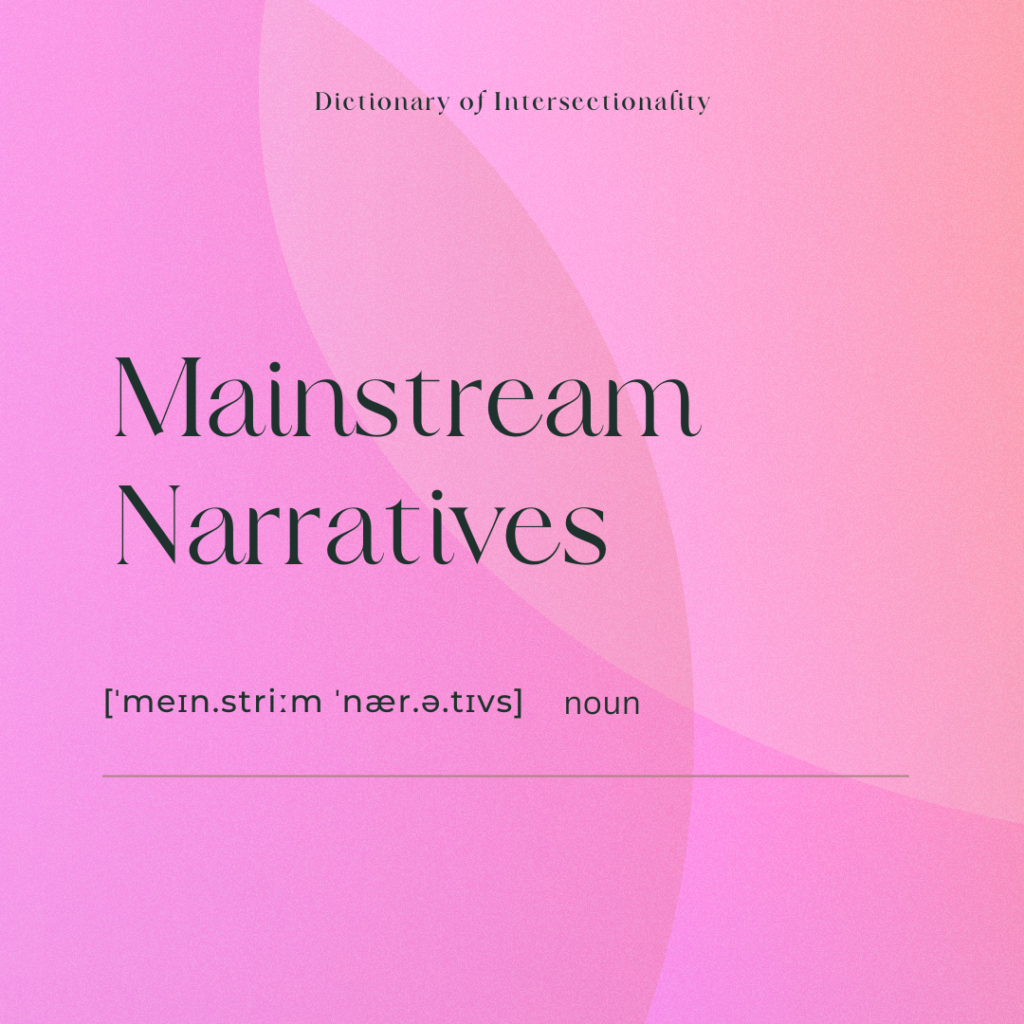
Mainstream narratives are widely accepted stories or perspectives promoted by institutions and media, shaping societal understanding.
They shape perceptions of current events, history, and personal identity by selecting and framing information.
Mainstream narratives appear objective but often marginalised alternative viewpoints, particularly those of marginalised groups.
Examples include narrow beauty ideals, reinforced gender roles, and the erasure of non-binary identities.
(Author: Feyza Öztürk Altaher)
See more resources
Appleby, J., Hunt, L., & Joyce, P. (2000). Telling the truth about history: How textbooks shape knowledge of the past. Norton.
Bordo, S. (1999). Unbearable weight: Feminism, fatness, and the body. University of California Press.
Connell, R. W. (1995). Masculinities. University of California Press.
Corner, J. (2004). Taking sides: Competition and conflict in broadcast news. Sage Publications.
Gamson, W. A. (1992). Talking politics. Cambridge University Press.
Kessler, S. J. (1998). The mismeasurement of women: How measurement creates the illusion of nature. Yale University Press.
Shoemaker, P. J., & Reese, S. D. (1996). Mediating the message: Theories of influences on mass media content. Longman.
Said, E. W. (1994). Culture and imperialism. Vintage Books.
